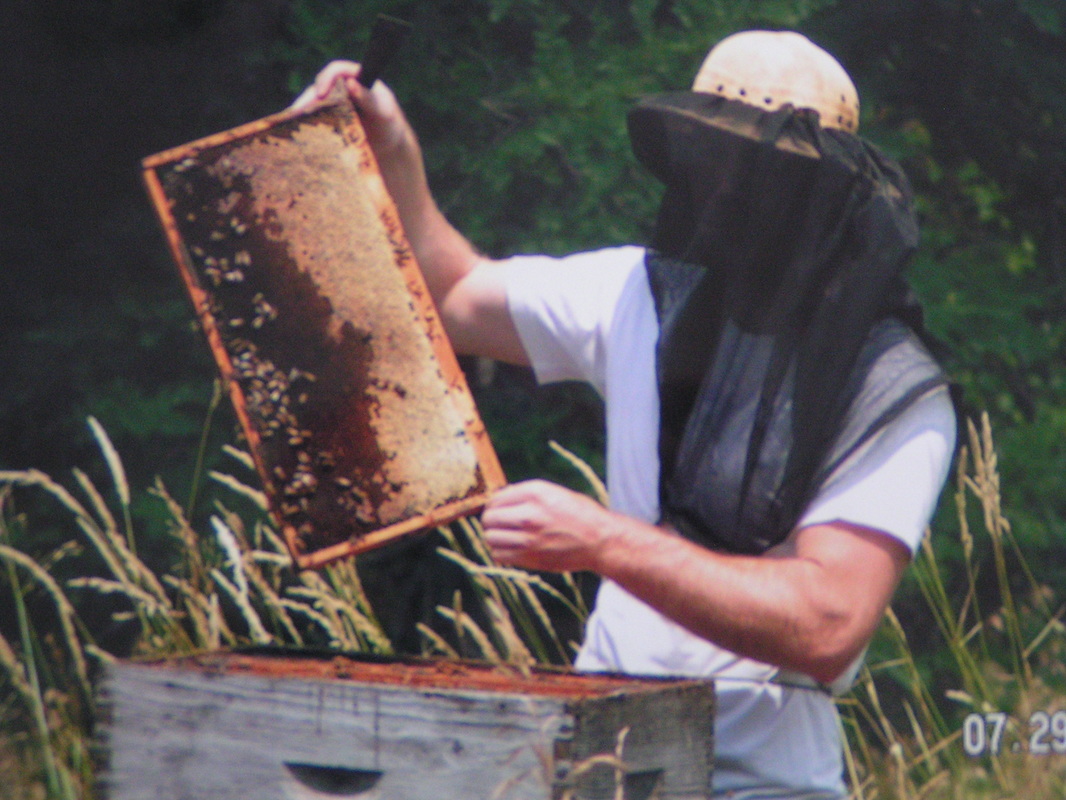"Robbing is a major source of disease transmission that can inevitably be traced to poor management practices. Working colonies during a nectar dearth, leaving pieces of honey-laden comb in the apiary, allowing bees to clean out wet combs, improper feeding during a dearth, and maintaining dead-outs and weak colonies all lead to robbing. To prevent robbing, or to stop it once it has begun, you must know the warning signs. Bees fighting at the entrances, bees snooping at cracks between supers, and bees flying back and forth in front of a colony looking for a way to get past the guards all indicate that robbing is occurring. Robbing is a major source of disease transmission that can be traced to poor
management practices. Without corrective action, robbing can quickly escalate from a handful of bees attacking one colony, to tens of thousands of highly aggressive bees swirling around an apiary like a tornado, fighting and stinging everything in sight. Not only will weak colonies be robbed or killed, unsuspecting bystanders and animals can be injured, and you may lose a good apiary location if your bees are located on someone else’s property. Manage your bees to prevent robbing from getting started, and take appropriate steps to stop robbing it if it starts."
Management of Honey Bee Brood Diseases
Part II: Management Protocols
Nicholas Calderone
May 2001

 RSS Feed
RSS Feed
